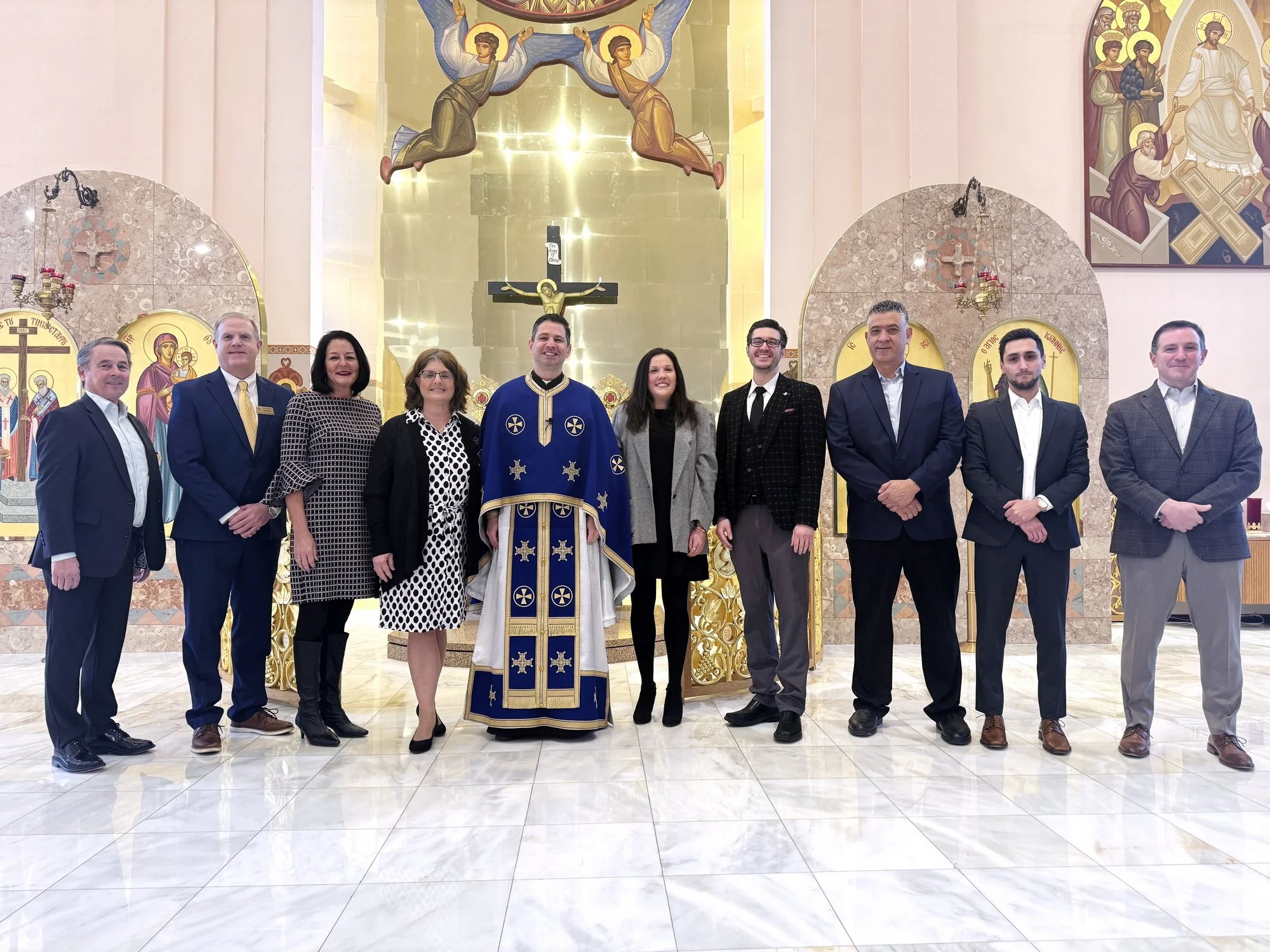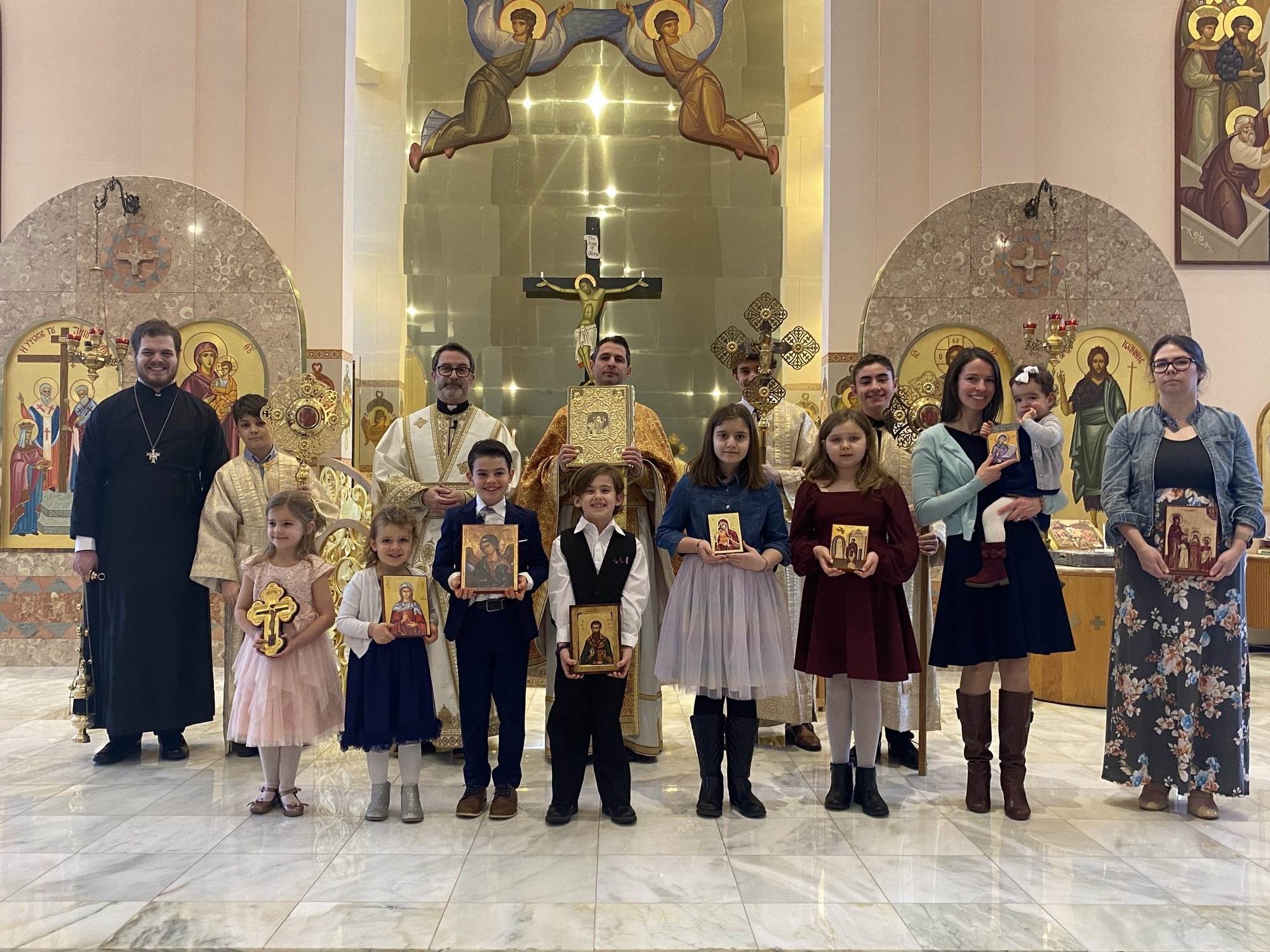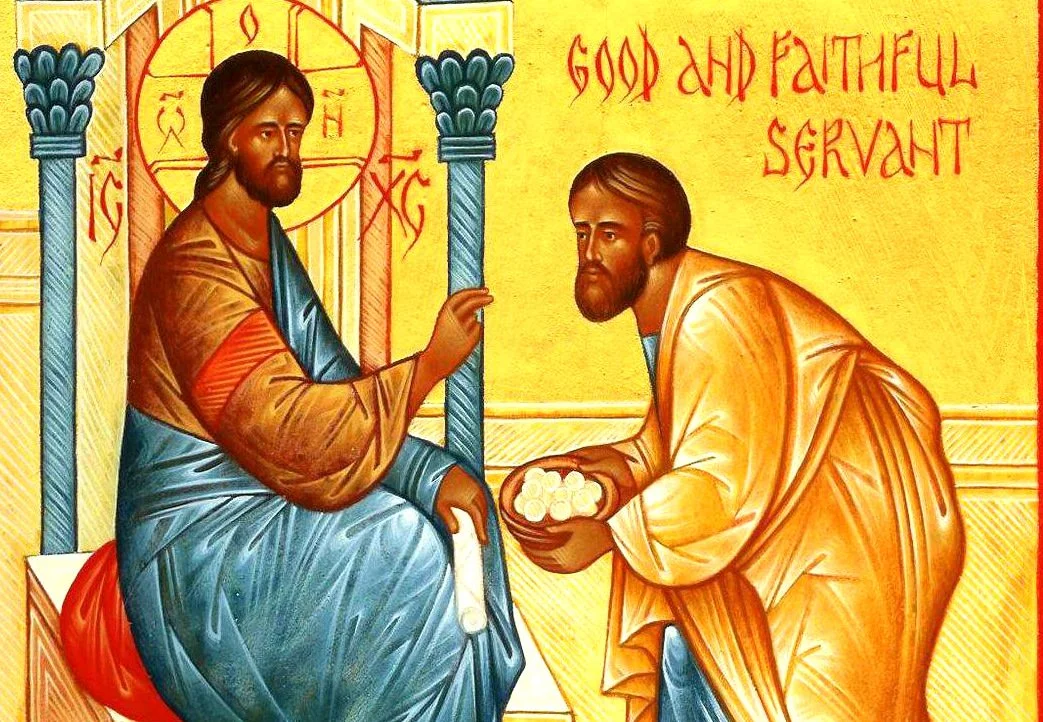Sacraments
-
What a Sponsor needs:
A complete change of clothing for the baby, including an undershirt
One Gold Cross
One small bottle of olive oil
One bar of soap
One white bath towel
Two white hand towels
Three white candles
One white sheet
The sponsor must be Orthodox in good standing with the Church (requires proof of Orthodox Baptism & letter from own parish priest)
Days when Baptisms are NOT performed:
September 8, the Nativity of the Theotokos
September 14, the Elevation of the Holy Cross
November 21, the Presentation of the Theotokos
December 25, the Nativity of Christ (Christmas)
January 5, Eve of Theophany
January 6, Theophany, the Baptism of Christ
February 2, the Presentation of Christ
March 25, the Annunciation
Palm Sunday (The Sunday before Pascha)
Holy Week (the week prior to Pascha)
Ascension of Christ (forty days after Pascha)
Pentecost (fifty days after Pascha)
August 6, the Transfiguration
August 15, the Dormition (Falling Asleep) of the Theotokos
-
The gift of God's forgiveness is received through private prayer, corporate worship, the disciplines of prayer and fasting, penitential services and above all through the sacrament of Holy Confession.
The value of Holy Confession is twofold. First, through this sacramental act of the ordained priest and the Christian believer we have the assurance of divine forgiveness, according to the words of Christ (Jn. 20:23). Secondly, Holy Confession provides the opportunity to talk about one's deep concerns, to receive counsel and to be encouraged toward spiritual growth, all of which are universally recognized as extremely beneficial to personal life.
Holy Confession is appropriate whenever an Orthodox Christian feels the need for it. It is also a part of our total spiritual preparation during the fast periods leading up to the great feasts of Easter, Christmas, the Falling Asleep of the Theotokos, and the Feast of Twelve Apostles. Confessions are heard by appointment. Please contact the Church office at 248-477-1677 or office@holycrossgo.org. You may also contact Fr. Alex directly at 248-306-9162.
-
We need from the couple:
Full Name
Mother’s maiden name
Date of Baptism
In what religion you were baptized
Have you ever been married? In a Greek Orthodox Church, in any other Church or just civilly?
Schedule three premarital sessions with the priest
What a Koumbaro/Koumbara (Best Man/Maid of Honor) needs to bring:
A set of crowns
A silver tray
Three candles (two decorated)
The koumbaro/koumbara must be Orthodox, and in good standing with the Church (requires proof of Baptism & letter from Parish Priest)
Marriages are NOT performed on fast days (or seasons) and major feast days as follows:
Great Lent (starts on a Monday, 7 weeks prior to Pascha)
Fast of the Apostles (varying in length from 1 to 6 weeks; it begins on a Monday, 8 days after Pentecost, and ends on June 28, the eve of the feast of Saints Peter and Paul)
Fast of the Dormition of the Virgin Mary (August 1-14)
Christmas Fast (December 12 - December 24)
Individual fast days:
Beheading of St. John the Baptist (August 29)
Eve of Epiphany (January 5)
All Wednesdays and Fridays
Any Feast Day of the Lord or the Theotokos as follows:
September 8, the Nativity of the Theotokos
September 14, the Elevation of the Holy Cross
November 21, the Presentation of the Theotokos
December 13 through 25
December 25, the Nativity of Christ (Christmas)
January 5, Eve of Theophany
January 6, Theophany, the Baptism of Christ
February 2, the Presentation of Christ
March 25, the Annunciation
Palm Sunday (The Sunday before Pascha)
Holy Week (the week prior to Pascha)
Ascension of Christ (forty days after Pascha)
Pentecost (fifty days after Pascha)
August 6, the Transfiguration
August 15, the Dormition (Falling Asleep) of the Theotokos
Check the church calendar here.
-
Funeral services are permitted on any day of the year, except for Sundays and Great and Holy Friday.
-
Days when Memorials are NOT offered:
From the Saturday of Lazarus, to St. Thomas Sunday
Any Feast Day of the Lord or the Theotokos as follows:
September 8, the Nativity of the Theotokos
September 14, the Elevation of the Holy Cross
November 21, the Presentation of the Theotokos
December 25, the Nativity of Christ (Christmas)
From December 25 through January 6
January 6, Theophany, the Baptism of Christ
February 2, the Presentation of Christ
March 25, the Annunciation
Palm Sunday (The Sunday before Pascha)
Holy Week (the week prior to Pascha)
Ascension of Christ (forty days after Pascha)
Pentecost (fifty days after Pascha)
August 6, the Transfiguration
August 15, the Dormition (Falling Asleep) of the Theotokos
Important
Read our Sanctuary and Fellowship Hall policies and usage fees. You must sign the agreement before using our Church facilities.
Before scheduling any sacraments, please confirm the dates with Fr. Alex.
For questions, please call the Church Office at 248-477-1677 or send an email.
“Through their prayers for, and alms, on behalf of the deceased, Christians display the relationship between this world and the world to come. The Church in this world and the Church in the other world are one and the same - the one Body of Christ, one the Church Militant, and the other the Church Triumphant. It can be compared to a tree which has roots beneath the earth as well as branches above the earth, but both the roots and the branches comprise one organism. This metaphor also illustrates how we on earth who comprise the Church Militant can receive help from the saints and the righteous ones in the Heavenly Church Triumphant. Saint Athanasios says: ‘As it happens with wine inside a barrel which, when the vineyard blooms in the field, senses it and the wine itself blossoms together with it, so it is with the souls of sinners. They receive some relief from the Bloodless Sacrifice offered for them and from charity’ performed for their repose. Saint Ephrem the Syrian cites that same example with wine and the vineyard and concludes: ‘And so, when there exists such mutual sensitivity even among plants, is not the prayer and sacrifice felt even more for the departed ones?’”








